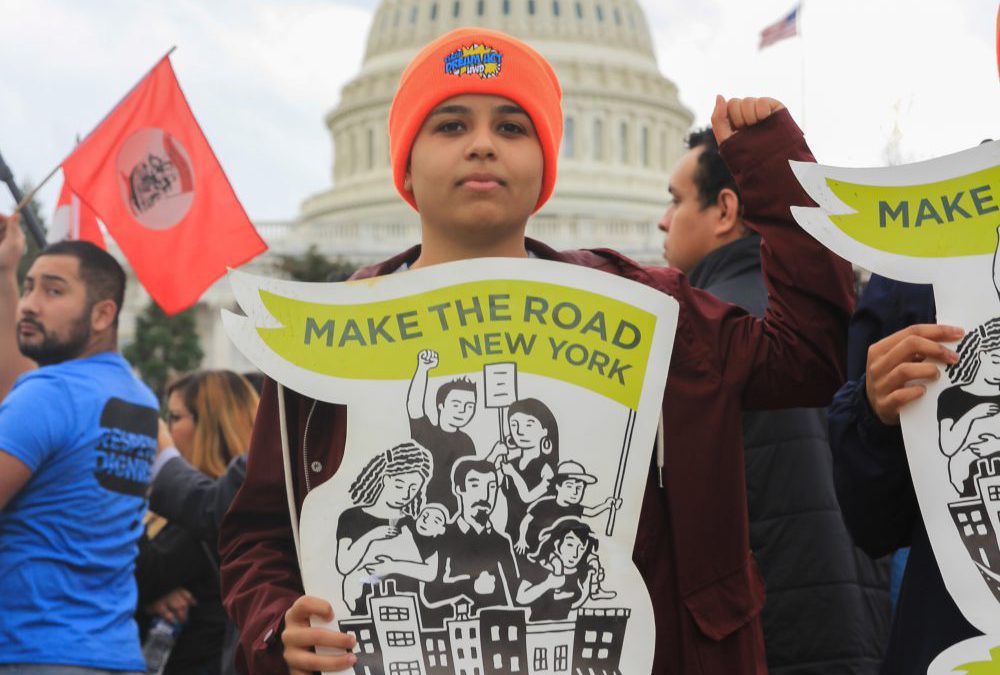WASHINGTON – National Education Association president Lily Eskelsen García was recently called by a teacher in Colorado whose kindergarten class was confused as to why one boy brought a suitcase to class. Amie Baca-Oehlert, the teacher, wanted to know how to explain why the student had brought what he said were “all my special things in case they come to get me,” said Eskelsen García.
Under the Trump administration, the immigration authorities have stepped up their enforcement of immigration laws, and the impacts are reverberating through classrooms across the country. Lawmakers are debating how to provide relief for children who are recipients of the Deferred Action on Childhood Arrivals program, which President Trump has targeted. Under that program, undocumented immigrants brought to the United States as children were granted temporary amnesty.
Many students are “living in terror of losing their families,” said Patricia Gándara, co-director of the UCLA Civil Rights Project. Gándara spoke at a discussion Wednesday at the Wilson Center in Washington D.C., where speakers argued that that the crackdown on undocumented immigrants harms both students and teachers.
“Many teachers wrote to tell us about outstanding high school students, students who were on-track to go into highly selective universities, giving up on school because they no longer saw a future,” Gándara said based on a study she conducted of over 730 schools.
Absenteeism and behavioral problems in children who are immigrants or whose parents are immigrants also increased, the study noted. Gándara added that non-immigrant students and teachers were also harmed by the increase in enforcement because they feared for their classmates.
Shena Sanchez, a UCLA doctoral candidate agreed. Her research found that 85 percent of teachers reported an increase and anxiety and stress because of students’ experiences with immigration enforcement.
Federation of American Immigration Reform Communications Director Dave Ray, who was not on Wednesday’s panel, disagreed, saying the students in question shouldn’t be at U.S. schools in the first place.
“The presence of these illegal alien children in the country where their parents are not allowed to be or not authorized to be is costing U.S. students dearly,” he said. He cited a FAIR report that found undocumented immigration is responsible for over $44.4 billion in state education costs.
This panel comes two days after the Supreme Court declined to hear a case on DACA. That decision means that the case will likely have to first be heard in an appeals court, after which the high court could potentially review it.
Gándara, however, said keeping DACA in place will not completely fix immigration issues.
“Even if we were to get a clean DACA bill, as long as these parents are still terrorized by this immigration enforcement regime, the schools will continue to suffer.”

